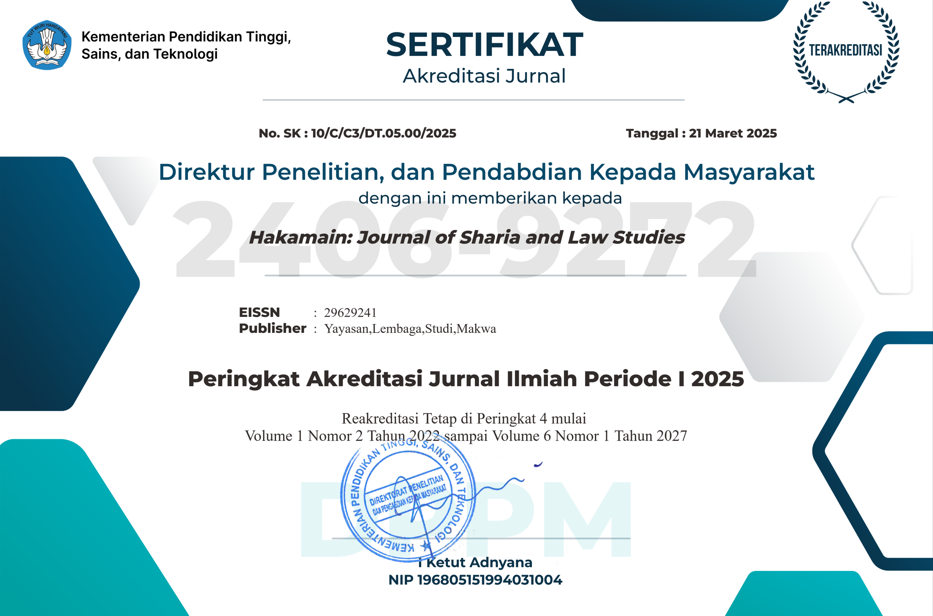Giving the Right to Former Prisoners to be Leaders in the Study of the Philosophy of Islamic Law
DOI:
https://doi.org/10.57255/hakamain.v2i2.329Keywords:
Former Convicts, Islamic Law, Philosophy, Political RightsAbstract
This research is qualitative, using data from library sources. Former convicts are people who have previously committed crimes or criminal acts and have served their sentences. In Islam, a leader must be fair, honest, trustworthy, and have high integrity. Law No. 8 of 2012 concerning Elections allows former convicts to become members of the legislature, but it has received many responses of rejection from the public. This is based on the perception that former convicts are morally compromised and no longer trusted by society. To build a legislature that is credible and can be trusted by the people, its members should have moral integrity, be intelligent (competent), and be statesmen, especially since legislative members represent the people as the holders of sovereignty. In the Quran and Hadith, there are hardly any explicit requirements mentioned for legislative members, let alone the status of former convicts. This study aims to determine the capability of former convicts to become leaders within the framework of Islamic legal philosophy. The results of the study show that, philosophically, Islamic law requires a leader to be just and their sense of justice to be unimpaired, thus it is makruh (discouraged) to grant former convicts the right to become leaders and to be at the level of tahsiniyah.
Downloads
Published
How to Cite
Issue
Section
Citation Check
License
Copyright (c) 2024 Irvan Refliandi, Fatimah Fatimah

This work is licensed under a Creative Commons Attribution-ShareAlike 4.0 International License.






